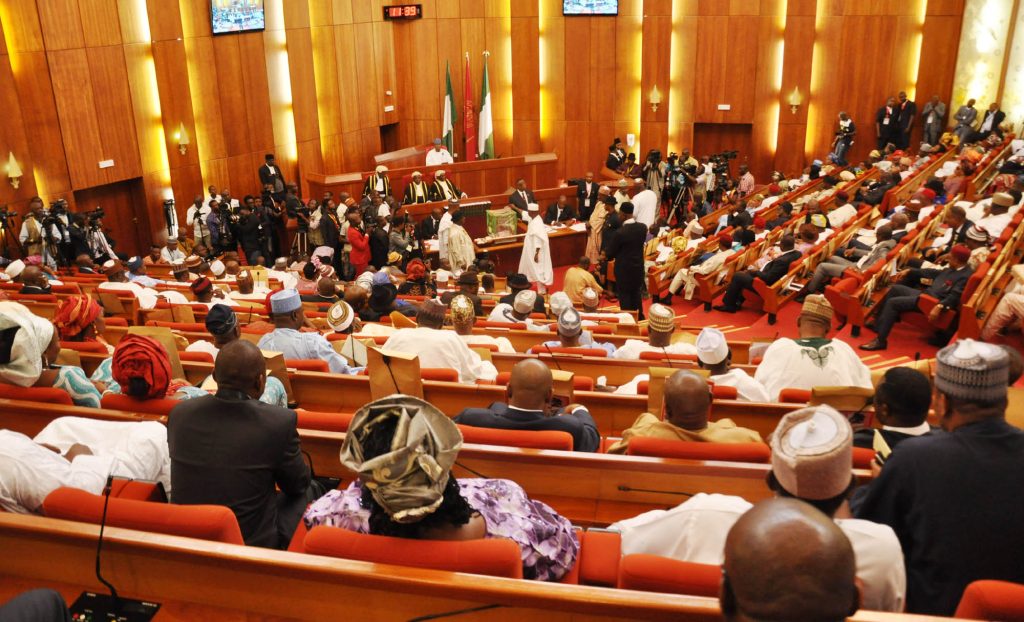The Nigerian Senate successfully greenlit the 2024 Appropriation Bill, amounting to N28.77 trillion, following its third reading on Saturday, December 30, 2023.
This legislative milestone, endorsed by the Senate after meticulous consideration and approval of the joint committee on appropriation’s report, signifies an increase of over N1.2 trillion from the initially proposed N27.5 trillion by President Bola Tinubu on November 29.
In essence, the Senate sanctioned the bill, empowering it to authorise an aggregate expenditure of N28.777, 404, 073, 861. This allocation includes N1.7 trillion for statutory transfers, N8.76 trillion for recurrent expenditure, N9.99 trillion for capital expenditure, and N8.27 trillion for debt servicing.
Notably, the Gross Domestic Product (GDP) was pegged at 3.88%.
Senator Olamilekan Adeola, Chair of the Appropriation Committee, highlighted challenges faced during budget defence, including subcommittees’ complaints of inadequate funds, reduced budgetary allocations to relevant government entities, and the persistently devaluing naira amidst rising costs in the nation.
He disclosed that the executive forwarded requests for additional funding and expenditure items not initially included in the president’s bill, leading the committee to make adjustments on various fronts to accommodate these demands.
In formulating the details of the 2024 Appropriation Bill, the Committee adhered to the Medium Term Expenditure Framework/Fiscal Strategy Paper (MTEF/FSP) approved by the National Assembly, outlining basic assumptions and parameters for the fiscal year 2024. These included a crude oil price of $77.96 per barrel and crude oil production set at 1.78 million barrels per day.
Notably, the National Assembly approved an exchange rate increase to $800/$1, deviating from the executive’s proposed N750/$1 rate. Additionally, a GDP growth rate of 3.88% and a budget deficit of 9.18 trillion were greenlit by the National Assembly.
Despite the late submission of the 2024 Appropriation Bill, violating the Fiscal Responsibility Act’s timeline, the National Assembly remained steadfast in maintaining the January-December budget cycle.
Following its presentation by President Tinubu, the Senate engaged in thorough debates on the bill in late November and early December 2023. The subsequent readings and referrals to the Committee on Appropriations for further legislative action demonstrated the assembly’s commitment to timely budget deliberations.
The sub-committees, assigned specific deadlines, ensured prompt submission of budget defence reports. Notably, priority allocations were given to sectors such as security, agriculture, and work.
In his post-budget passage remarks, Senator Yemi Adaramodu, Chairman of the Senate Committee on Media and Information, assured that the National Assembly would rigorously monitor all appropriated funds through effective oversight functions.
President Tinubu, naming the budget “Budget of Renewed Hope,” underscored its focus on achieving macroeconomic stability, poverty reduction, and increased access to social security, aligning with key national objectives. This marks President Tinubu’s inaugural budget since assuming office on May 29, 2023.

